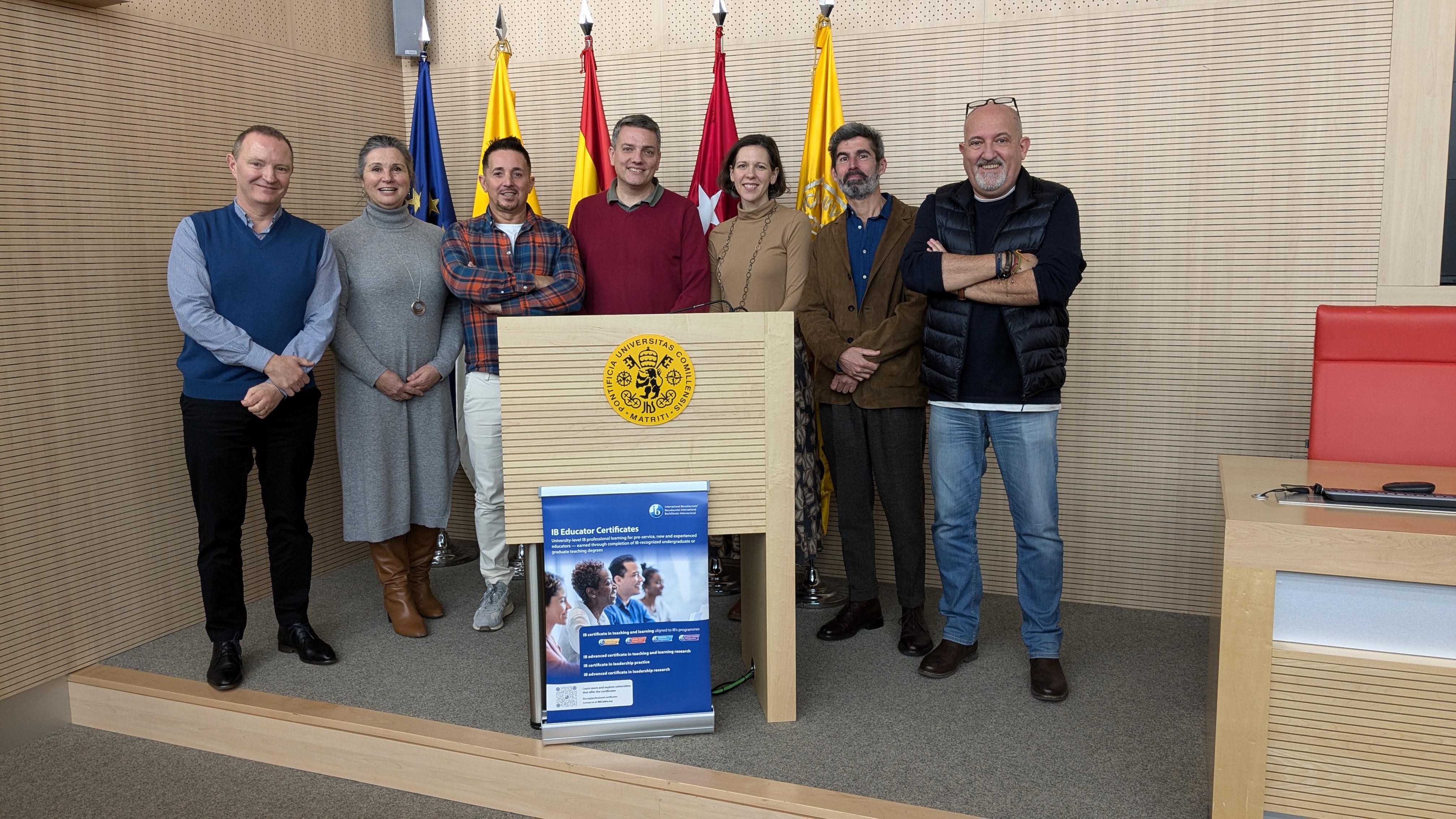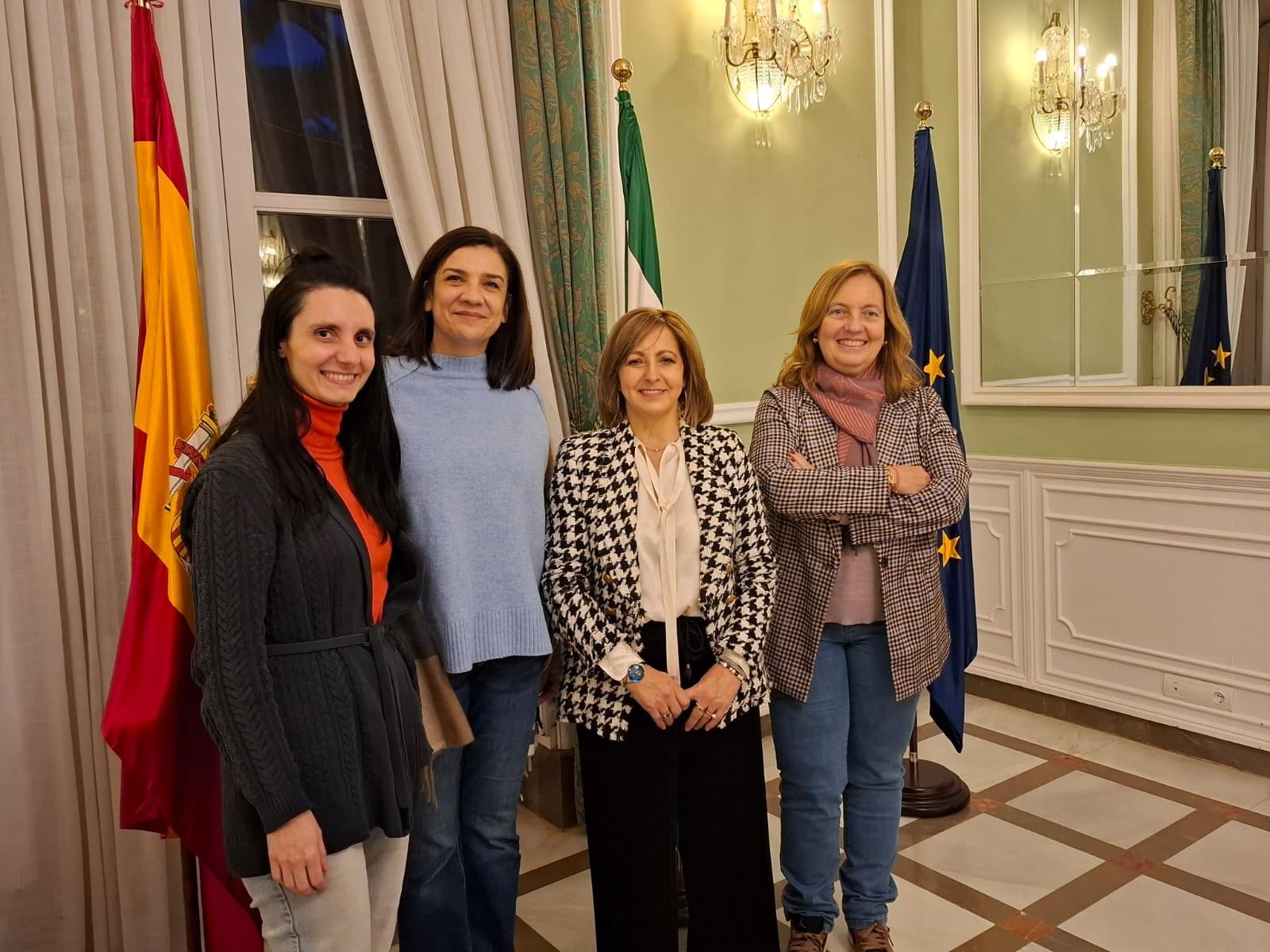Pros and cons of digitisation on young people's mental health
First conference organised by the Comillas Chair in Innovation and Digital Mental Health

11 October 2023
The Comillas Chair in Innovation and Digital Mental Health has taken its first steps with this conference dedicated to analysing the positive and negative factors of digitalisation in the mental health of young people. The Chair, which has the support of the Rovi pharmaceutical laboratories, aims to contribute to the improvement of mental health in society and to take advantage of the opportunities offered by new digital technologies to achieve this purpose.
"This generation (young people), raised in these digital environments, have resources that surpass us and, therefore, opportunities, but also problems", commented Rafael Jódar, Vice-Dean for Research at the Faculty of Human and Social Sciences(Comillas CIHS), who was the person in charge of opening the session together with Lucía Halty, Director of the Chair and Professor at Comillas CIHS. During the opening, Rafael Jódar wanted to emphasise the importance of the chairs at our university, as they serve as a platform for the transfer of knowledge, creating a positive impact for Comillas, as an educational and research institution, and for society.
Lucía Halty thanked the attendees for the good reception of this first conference. More than six hundred people attended, both in person and online, which, as she pointed out, "demonstrates the importance of the subject that is going to be dealt with today". Halty introduced the participation of Jaume Raventós, president of the Clariane group, who gave the attendees an introductory talk on the different digital tools and technologies available for the study and approach to mental health. "We have a situation in which we have to be careful. Not all technology is being used well". The speaker referred to the use of AI to replace therapies, the addictions that these tools can create in children and adolescents, and mental health mobile apps, which are still not sufficiently regulated. "It's a world we are just beginning to discover. But it also has a good side. The most important thing is to know what digital health can bring us".
The conference also organised two round tables. One of them was devoted to suicide prevention in the educational context, crisis management, and how to talk about and report suicide. This first round table, moderated by Lecturer Angustias Roldán, was attended by Raquel Yébenes, advisor to the socio-emotional team of the Subdirectorate General for Child Inspection of the Community of Madrid; Inmaculada Octavio, child and adolescent psychiatrist at UNINPSI; and Belén Reguera, director of training and volunteering at the organisation ANAR.
The afternoon panel was dedicated to the psychological challenges and benefits of digital technology. It analysed the impact of digitalisation on the adolescent population and the risks of social networks for the mental health of young people. In addition, they presented Centro AdCom, a proposal for the prevention, treatment and research of behavioural addictions, developed by the Gregorio Marañón Hospital and the Community of Madrid; and an experience of treatment of Attention Deficit and Hyperactivity Disorder with digital therapy. Moderated by Lecturer Laura Bermejo, this presentation was given by Belén Andrade, specialist in digital rights at UNICEF; Fabián Cardell, psychologist from the child and adolescent intervention team at UNINPSI; Francisco Ferre, head of the Psychiatry Service and co-director of the Psychiatry and Mental Health Institute at the Gregorio Marañón Hospital; and Ignacio de Ramón, CEO of Sincrolab. Finally, the session was closed by Mariano Ventosa, Vice-Rector for Research and Teaching Staff at Comillas.
What is the Chair in Innovation and Digital Health?
The Chair in Innovation and Digital Health was created in February 2023 with the mission of contributing to improving the mental health of society and taking advantage of the opportunities offered by new digital technologies to improve the quality of life and care of people. As stated in its annual report: "The COVID-19 crisis has shown that the traditional model of access to health resources, especially psychological resources, needs to evolve. The roots of the system have to be reformulated, and that means introducing technology. There is an obligatory dialogue between technology and mental health that must be carried out without losing the essence of help, which is human contact". For its operation, the chair has the support of Rovi pharmaceutical laboratories.
More photos
You may also be interested in

The Department of International Relations of the Faculty of Humanities and Social Sciences (Comillas CIHS) organised the first conference dedicated to the topic

This recognition will also facilitate their employment in schools where the International Baccalaureate Diploma Programme is implemented

It is a European project in which the Faculty of Humanities and Social Sciences (Comillas CIHS) participates as a partner
